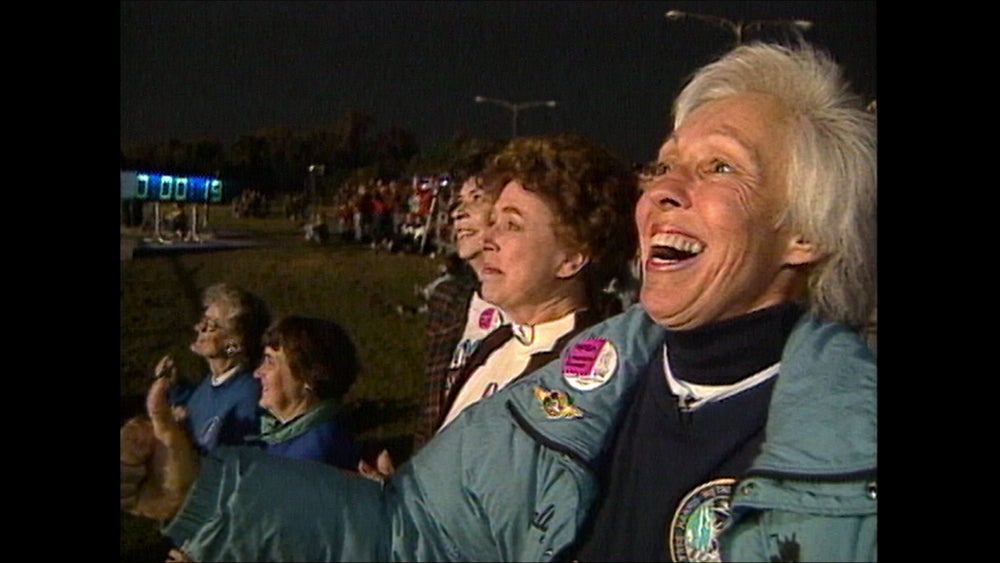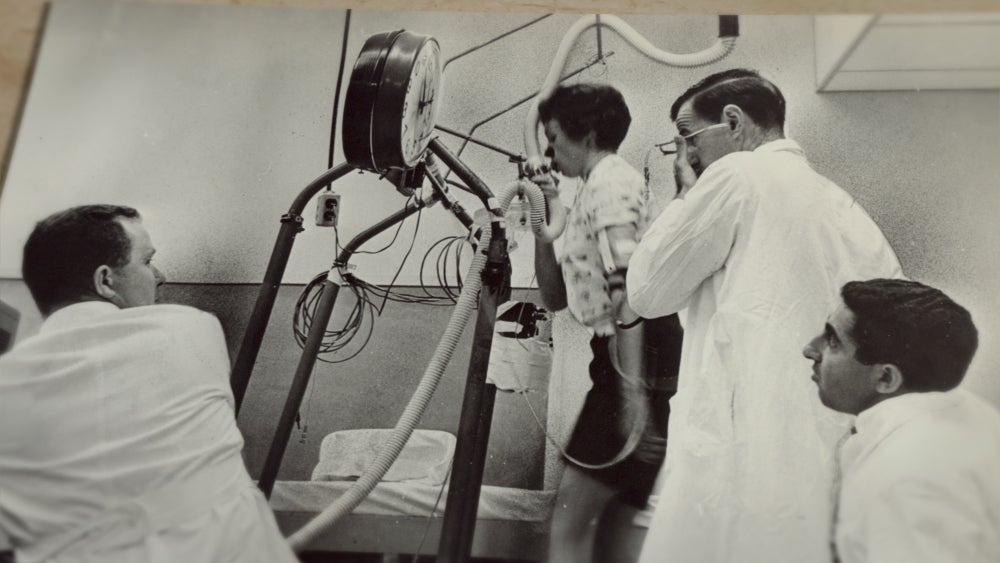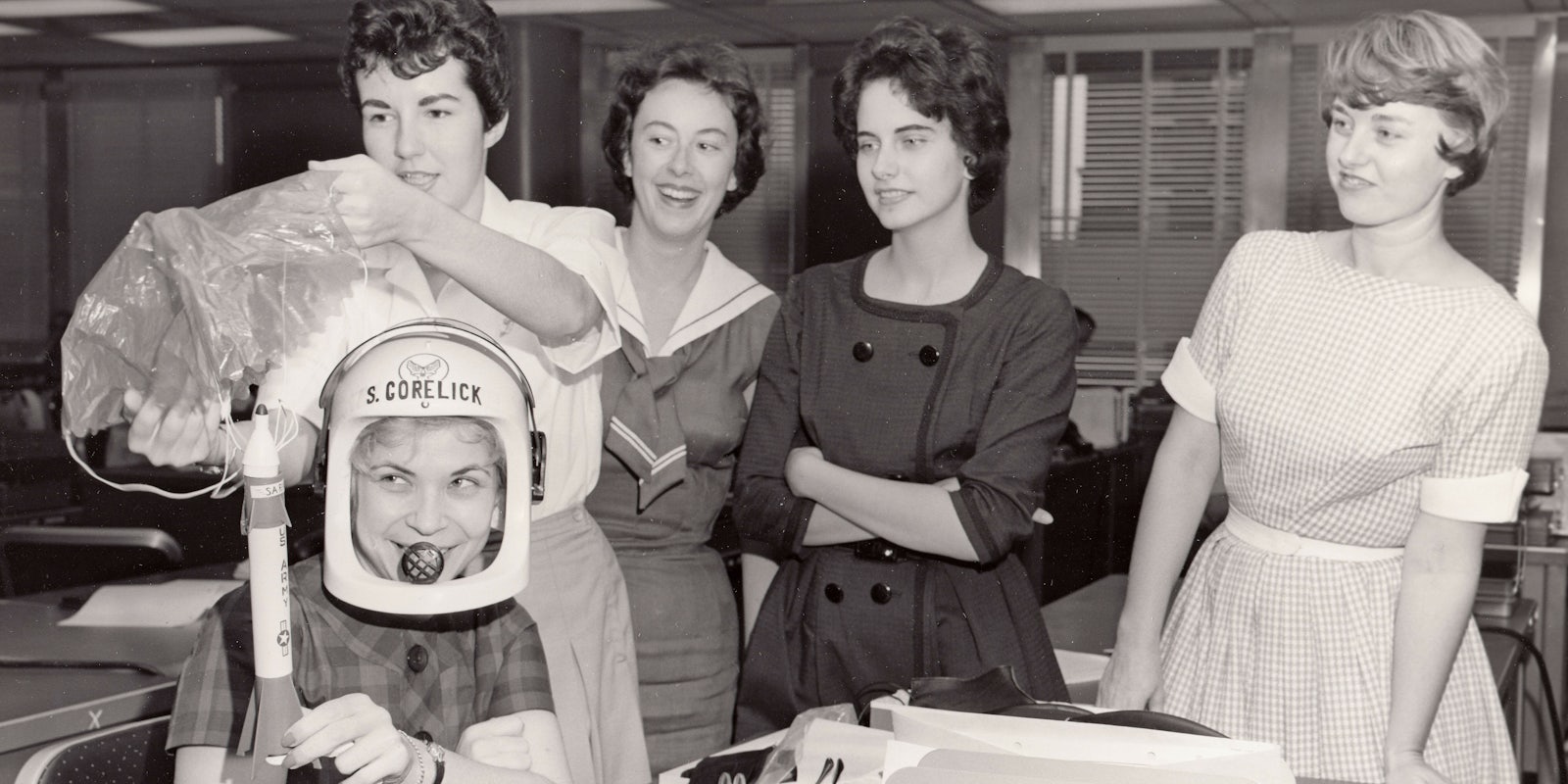Project Mercury was NASA‘s first human spaceflight program and would see Alan Shepard become the first American in space in 1962. Drilling into the lesser-known history of the mission, the effective Netflix film Mercury 13 chronologically documents its dismissive and then-customary treatment of women, while examining what should’ve been. Some of the women in and around the program are interviewed, including 91-year-old Rhea Woltman and 81-year-old Gene Nora Jessen.
The film from David Sington and Heather Walsh is a captivating experience ripe with sobering details.

When asked if there was a need for women in space, pilot Jerrie Cobb, one of the Mercury 13 women, argued, “It’s the same thing as, ‘Is there a need for men in space?’ I mean, if we’re going to send a human being into space, we should send the one most qualified. And in certain areas, women have to offer, in other areas men do. I think we ought to use both.”
The film draws from endeavors of a surgeon and pioneering NASA advisor, Dr. William Randolph Lovelace at his famed Lovelace Clinic in Albuquerque, New Mexico, during the time of Project Mercury. Lovelace also created a stealth testing program for women. As male astronauts underwent testing, a set of talented women went through the same physiological and psychological battery of testing.
It was found that the women tested higher than the men in specific cases, especially with the sensory deprivation chamber. One woman, Cobb, easily endured nine record-breaking hours in there. However, the hitch was in the prerequisite jet certification, a catch-22 proposition, as the women (all skilled pilots) weren’t allowed training to achieve certification.

There are quibbles with Mercury 13, including the omission of information. The story of the Mercury 13 women isn’t necessarily unknown, as it made news and became a legal contest before Congress in 1962, with a matter-of-fact argument of evident sexual discrimination. However, lack of details in the finality of the case and its effect on the program are where the film falls short.
For example, there’s no discovery into why one of the women, Jacqueline Cochran, at the tip of Lovelace’s spear, testified against the program when the case went to Congress. Neither does the documentary explain, with any specificity, why the independently funded program was ultimately shut down.

Regardless of the inconsistencies, the fact remains that it would be two decades before Sally Ride famously became the first American woman to go into space. (For context, Russian cosmonaut Valentina Tereshkova reached orbit in 1963, though it was apparent Cold War one-upsmanship. It would be 19 more years before Svetlana Savitskaya went up as the second Russian woman in space.)
In Mercury 13, the frustrating denial of history for these talented women requires no implication, in what should’ve been a watershed moment in the midst of tumultuous times that included the Civil Rights struggle. But as a Netflix documentary, it’s critical history that can at least stream on forever.
Still not sure what to watch on Netflix? Here are our guides for the absolute best movies on Netflix, must-see Netflix original series and movies, and the comedy specials guaranteed to make you laugh.


